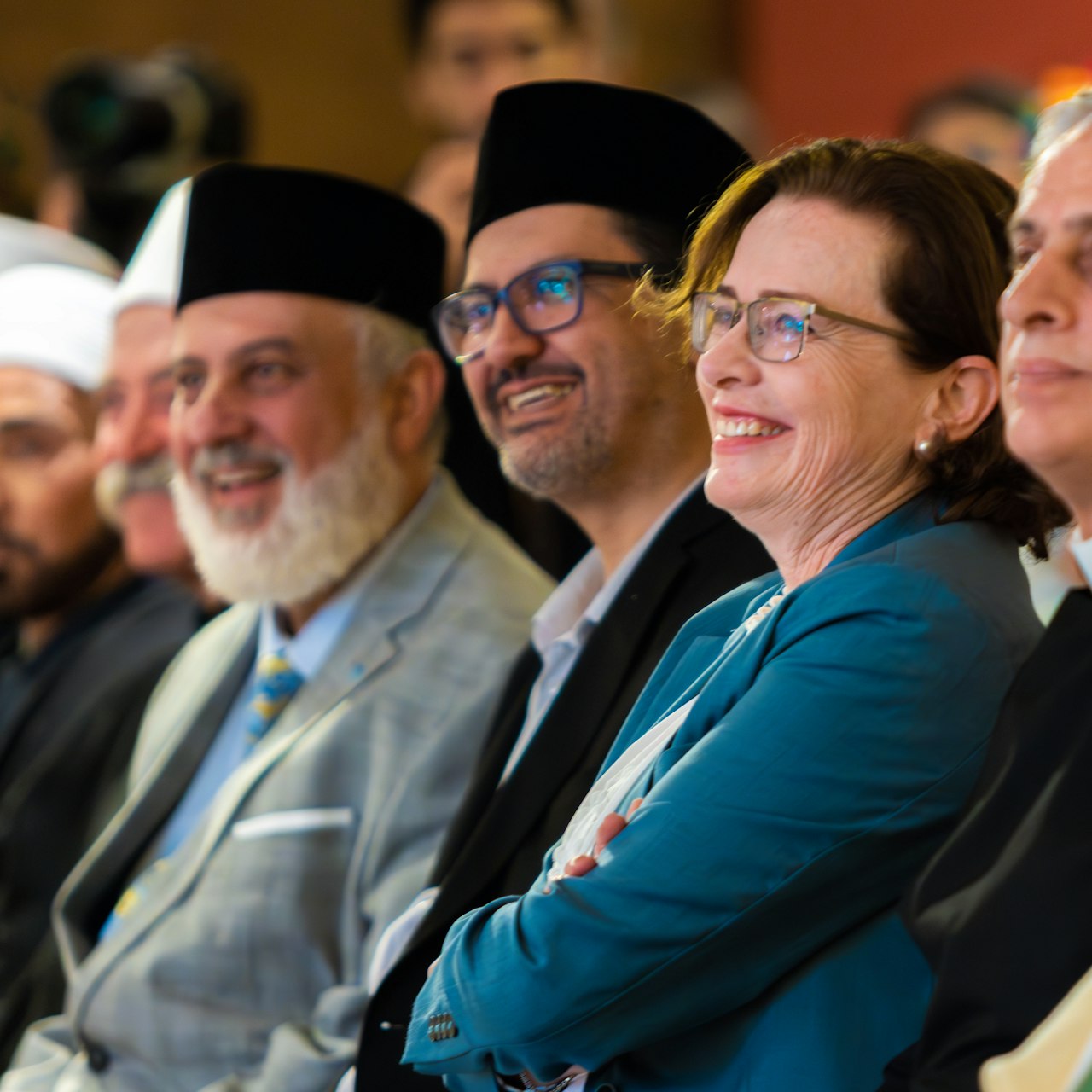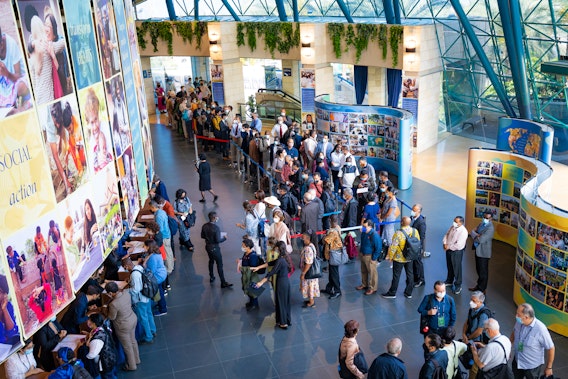BAHÁ’Í WORLD CENTRE — A reception held in Haifa brought together more than 160 delegates and Counsellors from the 13th International Convention and some 150 government officials, diplomats, civil society leaders, and leaders of Faith communities—Jewish, Muslim, Christian, and Druze—to explore the global electoral process associated with the Convention, as well as broader Bahá’í efforts to foster social transformation.
Haifa Mayor Einat Kalisch-Rotem expressed her profound appreciation for the opportunity to address the diverse group and her longstanding admiration for the Bahá’í Faith. “It is an honor for me to stand here before you as the mayor of Haifa, the city where one of its iconic symbols, and one of the most sacred and spiritual places for the Bahá’í community is based. The Bahá’í World Centre, including the Shrine of the Báb and the terraces, is a symbol of the Bahá’í commitment to unity, peace, and equality.”
Dr. Kalisch-Rotem added: “As mayor of Haifa, I am committed to upholding the values of the Bahá’í Faith and ensuring that all residents of Haifa feel welcome and valued. Our city is home to people of many different faiths and backgrounds, and it is my belief that we are stronger when we celebrate our diversity and work together to create a better future.”
David Rutstein, Secretary-General of the Bahá’í International Community, addressed that gathering, stating: “We’re delighted to give you a glimpse of the Bahá’í world, representatives of which have traveled far and wide to carry out a sacred duty—to elect the Universal House of Justice, the supreme governing body of the Bahá’í world.”
Some of the delegates from the Convention spoke about their own experiences attending the Convention. Lyazzat Yangaliyeva, a delegate from Kazakhstan, said that what made the gathering particularly special to her was “to see people from across the world gathered in one place, united in one common, sacred responsibility.”
Ms. Yangaliyeva likened the Convention to a garden filled with various flowers, whose beauty is enhanced by their diversity.
Henry Tamashiro, a delegate from Vanuatu, emphasized the shared desire among all participants of the Convention for a better future for both current and future generations. “We want our tomorrows to be better than our yesterdays,” he said.
To realize this hope, said Mr. Tamashiro, a new conception of leadership based on service to society is needed. He further added that attending the Convention is itself an expression of the desire for social progress. “Electing the governing body of the Bahá’í faith will actually help us in our search for a better world.”
A 7-minute film, titled Summons to Service, was produced for the occasion and explores the global Bahá’í electoral process, which is distinctive for its lack of nominations and campaigning.
Ariane Sabet, Deputy Secretary-General of the Bahá’í International Community, said that the film “describes the way the Bahá’í Faith administers its affairs and holds its elections, from the grass roots to the international level, focusing on the well-being of humanity. The film provides an overview of what is essentially an innovation in governance, which we are learning to apply to ever more complex circumstances.”



